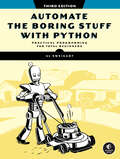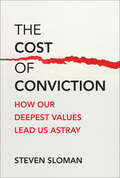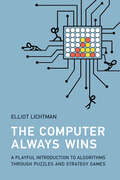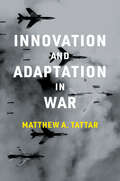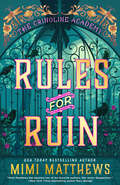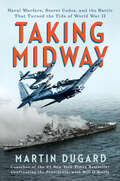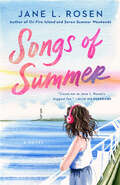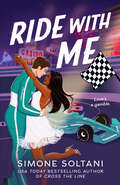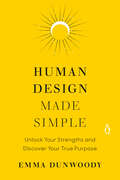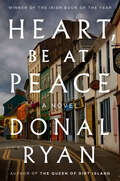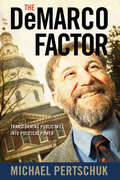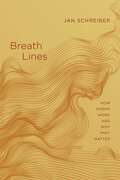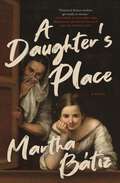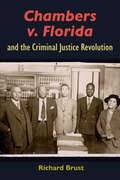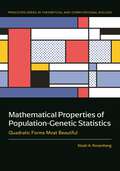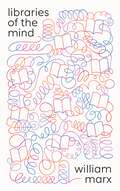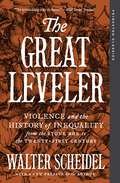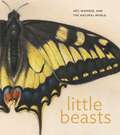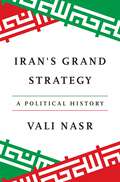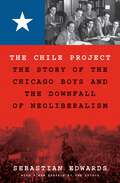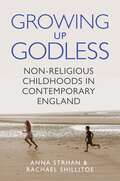- Table View
- List View
Automate the Boring Stuff with Python, 3rd Edition
by Al SweigartThe bestselling introduction to Python programming, revised to include the latest Python features, improved explanations, and new chapters about databases and sound files.If you&’ve ever spent hours renaming files or updating hundreds of spreadsheet cells, you know how tedious tasks like these can be. But what if you could have your computer do this work for you?In this fully revised third edition of Automate the Boring Stuff with Python, you&’ll learn how to use Python to write programs that do in minutes what would take you hours to do by hand—no prior programming experience required. Early chapters will teach you the fundamentals of Python through clear explanations and engaging examples. You&’ll write your first Python program; work with strings, lists, dictionaries, and other data structures; then use regular expressions to find and manipulate text patterns. Once you&’ve mastered the basics, you&’ll tackle projects that teach you to use Python to automate tasks like: Searching the web, downloading content, and filling out formsFinding, extracting, and manipulating text and data in files and spreadsheetsCopying, moving, renaming, or compressing saved files on your computerSplitting, merging, and extracting text from PDFs and Word documentsInteracting with applications through custom mouse and keyboard macrosManaging your inbox, unsubscribing from lists, and sending email or text notificationsNew to this edition: All code and examples have been thoroughly updated. You&’ll also find four new chapters on database integration, speech recognition, and audio and video editing, as well as 16 new programming projects and expanded coverage of developer techniques like creating command line programs.Don&’t spend your time on work a well-trained monkey could do. Even if you&’ve never written a line of code, you can pass off that grunt work to your computer. Learn how in Automate the Boring Stuff with Python.
The Cost of Conviction: How Our Deepest Values Lead Us Astray
by Steven SlomanA timely and important perspective on how people frame decisions and how relying on sacred values unwittingly leads to social polarization.When you are faced with a decision, do you consider the best outcome, or do you consider your deepest values about which actions are appropriate? The Cost of Conviction contrasts these two primary strategies for making decisions: consequentialism or prioritizing one&’s sacred values. Steven Sloman argues that, while both modes of decision making are necessary tools for a good decision maker, people err by deploying sacred values more often than they should, especially when it comes to sociopolitical issues. As a result, we oversimplify, grow disgusted and angry, and act in ways that contribute to social polarization. In this book, Sloman provides a new understanding of today&’s societal ills and grounds that understanding in science.Drawing on historical and current examples of the two decision-making strategies in action, the author provides a thorough overview of the psychology of decision making, including work on judgment, conscious and unconscious decision-making processes, the roles of emotion, and even an analysis of habit and addiction. With its unique emphasis on sacred values, The Cost of Conviction is an eye-opening must-read for all decision makers, especially those who wish to understand judgment, social decision making, and leadership.
The Computer Always Wins: A Playful Introduction to Algorithms through Puzzles and Strategy Games
by Elliot LichtmanAn engaging and approachable resource for beginning-to-intermediate coders eager to learn advanced ideas in computer programming.In The Computer Always Wins, Elliot Lichtman will teach you some of computer science&’s most powerful concepts in a refreshingly accessible way: exploring them through word games, board games, and strategy games you already know. Learn recursion by playing tic-tac-toe, efficient search through puzzle games like sudoku and Wordle, and machine learning by way of the playground classic rock-paper-scissors. Finish the book, and you&’ll come away with not only a deeper understanding of these foundational programming techniques but also a new appreciation for the amazing feats that can be accomplished using simple, readable code.
Innovation and Adaptation in War (Belfer Center Studies in International Security)
by Matthew A. TattarAn analysis of advances in military technology that illustrates the importance of organizational flexibility in both an attacker&’s innovations and an opponent&’s adaptations.How important is military innovation in determining outcomes during armed conflict? In Innovation and Adaptation in War, Matthew Tattar questions the conventional wisdom that, to succeed, military organizations must innovate early and often. Because successful methods of warfare are soon widely imitated or countered on the international stage, the advantages of a particular innovation quickly evaporate. Therefore, Tattar argues, large-scale innovations at the cost of organizational flexibility and the ability to adapt to an adversary&’s innovations may not be the optimal path—not just because force readiness is vital but also because innovation does not provide as long-lasting and decisive an advantage as may have been previously thought.Although other scholars have analyzed the sources of military innovation, Tattar is the first to focus on the relationship between innovation and specific military outcomes. Looking at several different types of military organizations and many different types of battles, he draws on theoretical works, in-depth historical research, and case studies, and finds that the initial advantages that are generated by innovation disappear far too rapidly in wartime for militaries to depend on them for victory. Furthermore, as Tattar demonstrates, emphasizing innovation in defense planning at the expense of organizational flexibility can have significant negative consequences. The decisive factor in successful adaptation, more often than not, is a well-positioned and flexible organization. Providing both a new framework for studying military innovation and a comprehensive review of the current literature in this field, Innovation and Adaptation in War offers crucial policymaking insights into when and under what circumstances militaries should innovate and adapt.
The Conditions of Will: The new novel from the author of MAGNOLIA PARKS, available now!
by Jessa HastingsTHE BRAND NEW NOVEL FROM THE AUTHOR OF TIKTOK SENSATION MAGNOLIA PARKS****Featuring stunning illustrated endpapers by Emmy Lawless exclusive to the UK hardback edition.****London-based Georgia Carter, professional lie-detector and body-language savant, has long been estranged from her infuriating, close-minded, wealthy South Carolina family. After a falling-out years ago, the chasm runs deep between the black sheep - Georgia and her gay, alcoholic brother - and their parents and elder siblings. But when their father dies suddenly, Georgia returns to the States for the funeral ... where she comes face-to-face with Sam Penny, her brother's AA sponsor.Amid the tensions, dramas and revelations of the family reunion, Georgia and Sam are instantly drawn to each other.However, Georgia's brother also harbours feelings for Sam, and the last thing Georgia wants to do is hurt the only family she's ever really had.When their father's will reveals a surprising bequest to a mysterious stranger, Georgia's ability to read people becomes crucial in unravelling her father's hidden past. The delicate balance within the family teeters, and secrets - both old and new - threaten to push them beyond the breaking point.There are only so many cracks a damaged family can take before it shatters.
Rules for Ruin (The Crinoline Academy)
by Mimi MatthewsA Most Anticipated Romance for Paste Magazine · The Nerd Daily · BookBub · Marie Claire · Book Riot · Bookish · FangirlishNo one betrays the Academy. But now Euphemia must decide: break the rules for her enemy, or let the rules break her heart.On the outskirts of London sits a seemingly innocuous institution with a secretive aim—train young women to distract, disrupt, and discredit the patriarchy. Outraged by a powerful lord&’s systematic attack on women&’s rights in Parliament, the Academy summons its brightest—and most bitter—pupil to infiltrate the odious man&’s inner circle. A deal is struck: bring down the viscount, and Miss Euphemia Flite will finally earn her freedom.But betting shop owner Gabriel Royce has other plans. The viscount is the perfect pawn to insulate Gabriel&’s underworld empire from government interference. He&’s not about to let some crinoline-clad miss destroy his carefully constructed enterprise—no matter how captivating he finds her threats.From the rookeries of St. Giles to the ballrooms of Mayfair, Euphemia and Gabriel engage in a battle of wits and wills that&’s complicated by a blossoming desire. Soon Euphemia realizes it&’s not the broken promises to her Academy sisters she should fear. . . . It&’s the danger to her heart.
Taking Midway: Naval Warfare, Secret Codes, and the Battle that Turned the Tide of World War II
by Martin DugardFrom Martin Dugard, #1 New York Times bestselling coauthor of Bill O'Reilly's Killing series, comes a fast-paced, dramatic account of the famous yet little-understood battle that turned the tide of World War II.1942. Everywhere around the world, the Allies are losing the war. Nowhere is this felt more completely than in the Pacific, where Japanese sea and ground forces claim victory after victory. Singapore falls. Then the Philippines. The vaunted American Navy fights to a draw with the Japanese at the Battle of Coral Sea. America's lone moral victory is Colonel Jimmy Doolittle's bombing raid on Tokyo—though even that is tinged with tragedy as two crew members are shot down and beheaded.Meanwhile in Honolulu, a brilliant young naval officer is determined to break Japan's top secret codes. Lieutenant Commander Joseph Rochefort is close to cracking the code by April. He is then startled to learn that the Japanese are planning yet another major invasion somewhere in the Pacific. Admiral Isoroku Yamamoto is planning to send four aircraft carriers to complete this task, in a bold attack that will be even larger than the December 1941 attack on Pearl Harbor.Rochefort's methods are unique, and those in power in the US Navy find his data flawed. Simply, many don't believe him. The best mind in the US Navy believes the next big attack will come at New Guinea or Australia.To prove himself, Rochefort must not only find the precise location but predict the date. What ensues is the cat-and-mouse adventure that will become the epic fight known as the Battle of Midway. American and Japanese pilots duel in the skies. Japan's Yamamoto will go toe-to-toe with American admirals Chester Nimitz, Jack Fletcher, and Raymond Spruance. The dramatic battle will involve strategy, luck, heartbreak—and will dramatically alter the course of World War II.
Songs of Summer (The Fire Island Trilogy)
by Jane L. RosenA young woman crashes the wedding of the summer on Fire Island in search of her birth mother—and gets a whole lot more than she bargained for—in this warm, heart-stopping getaway from Jane L. RosenMaggie May Wheeler is living her best life—at thirty, she has big plans for her vintage record shop and is about to be engaged to her childhood best friend. But when she stumbles across a letter she wrote to her future self when she was thirteen, she realizes it may not be enough. The letter ignites a desire to find her birth mother and discover where she really belongs.Her search takes her to dreamy Fire Island, where her birth mother is a guest at a wedding. As Maggie spies on her biological family, she&’s caught between diving into their chaotic lives and returning to her comfortable world. Things heat up when a charming local makes her an offer to crash the wedding as his date.Is it the island&’s magic, the whirlwind of the weekend, or the thrill of a fake beau that has her rethinking everything? Swept away by every love song she hears, Maggie must figure out where her heart truly lies.
Ride with Me (Lights Out)
by Simone SoltaniA marriage of convenience threatens to go off track in this steamy Formula 1 romance from the USA Today bestselling author of Cross the Line.Stella Baldwin thought her life couldn&’t get worse. Being left at the altar was bad enough, and the drunken rant she posted to her social media followers in the aftermath was the cherry on top. But having to show up at her cousin&’s bachelorette party in Las Vegas barely two weeks later feels like a cruel joke.Thomas Maxwell-Brown is just looking for a good time. With his family&’s expectations pressing down, his career as a Formula 1 driver threatened by fresh talent, and a new reputation making him the most hated man on the grid, he needs a break to clear his head. And what better way to decompress than with a stag party in Vegas?Stella isn&’t the woman Thomas expects to meet that night. And Thomas isn&’t the man Stella expects to wake up next to in the morning—with a ring on her finger. Staying married might be the perfect solution to all their problems, even if it is a little wild. Sometimes, what happens in Vegas doesn&’t need to stay there. . . .
Human Design Made Simple: Unlock Your Strengths and Discover Your True Purpose
by Emma DunwoodyThe simple, practical roadmap to unlocking your true powerHuman Design is a system based on our time and date of birth, and gives us the ultimate blueprint to our personality, energy, and authenticity. It offers a unique insight into who we are and how to achieve our potential—in all aspects of life.With the expert guidance of Human Design master coach Emma Dunwoody, you&’ll discover the transformative power of this ingenious system and how to make it work best for you. In simple steps, you&’ll find out:• How to truly understand yourself and embrace your superpowers• How to stop questioning yourself and trust in your intuition• What your energy type is and how to make it work for you• Ways to heal from the past and step into your lightWith journal prompts, future-visioning, and actionable tips on applying your new self-knowledge, Human Design Made Simple is your personalized toolkit to take your life in the direction you want to go.
So Over Sharing
by Elissa Brent WeissmanIn this timely contemporary middle grade novel from award-winning author Elissa Brent Weissman, two girls find their private struggles against their influencer mothers going very publicQuiet, introverted Hadley and rough-around-the-edges Willow have one big main thing in common: both their moms have gained a huge online following sharing every detail of their lives. Hadley&’s mom—Phoebe of @PhoebeAndJay fame—loves to share all the terrible, down and dirty bits about raising kids while Willow&’s mom Rosalind at the up-and-coming @MoonbeamsAndMarigold basks in the glow of motherhood. If getting all her life's moments (including an almost decade old viral potty training video) shared online isn't enough, Hadley&’s starting a new school in a new neighborhood and desperately trying to keep her mom&’s identity a secret while Willow is struggling with a recent life-changing announcement from her mom who, it turns out, is not getting out of the influencer world anytime soon. As the two girls build a friendship on a private Instagram page and share the pains of having a momfluencers, they come up against the same question—how long will they have to share their lives with everyone?
Heart, Be at Peace: A Novel
by Donal RyanWinner of the Irish Book of the Year Shortlisted for the Nero Novel of the YearFrom one of the most acclaimed Irish writers today, a new novel about smalltown Ireland that explores a community on the mend and the power of love and trauma to both bring people together and divide them&“I said it before. Madness comes circling around. Ten-year cycles, as true as the sun will rise. . .&”In a small town in Ireland, the local people have weathered the storm of economic collapse and now look to the future: The jobs are back, the dramas of the past seemingly lulled, and although the town bears the scars of its history, new stories have begun to unfold.But an insidious menace now creeps through back-alley shadows and into the lives of the townspeople. Old grudges fester and new ones arise. Young people are lured by the promise of fast money while the generation above them tries to hold back the tide of an enemy beyond their control. And the peace of this town is about to be shattered in an unimaginable way.A stunning, lyrical novel told in twenty-one voices, Heart, Be at Peace reveals a community that together looks to overcome the betrayals, secrets, and grudges that can divide families, neighbors, and entire generations.
The DeMarco Factor: Transforming Public Will into Political Power
by Michael PertschukVinny DeMarco might be a latter-day Don Quixote except that he tilts his lance at real obstacles to social justice: lobby-locked state legislatures and Congress, stonewalling the public will. And he makes impossible dreams come true. In twenty years of organizing campaigns in Maryland, he has led successful efforts to pass gun control laws (against National Rifle Association opposition), to hike cigarette taxes to prevent youth smoking, and to extend health care to hundreds of thousands of low-income workers. He has also built a unique alliance of mainstream and conservative faith groups, which helped secure rare bipartisan votes in Congress for the enactment in July 2009 of landmark FDA regulation of tobacco manufacture and marketing.DeMarco's unique strategic template, developed over two decades of serial campaigning, includes momentum-building stages over a multiyear campaign; unrelenting, skillful access to the media for engaging public support; coalitions of hundreds, even thousands, of faith, community, labor, public health, and business groups; and a hard press on candidates to support legislation before elections, rather than after they are comfortably in office. As an organizer/leader, Demarco also succeeds in his campaigns through force of personality: his unquenchable exuberance and idiosyncrasies delight and madden his opponents--sometimes his allies, too.Michael Pertschuk, himself a veteran advocate, here chronicles three of DeMarco's campaigns, each facing a different obstacle course. His deep analysis draws out strategic and leadership lessons that engaged citizens and advocates for popular causes stonewalled by powerful lobbies can put to immediate and practical use.
Breath Lines: How Poems Work and Why They Matter
by Jan SchreiberBreath Lines takes a fresh and down-to-earth approach to encounters with poetry. In these accessible, non-technical essays, Jan Schreiber offers insightful strategies for reading and understanding works that many people have found challenging. The essays address critical areas of poetic craft and interpretation: the content of poems, including narrative techniques and the voices a poet creates; the character and power of verse lines and the problems attending the translation of metrical poems; challenges of interpretation, including complex philosophies and obscure references; and a look at the future of the art, hinted by the competing styles and allegiances of contemporary writers. Each essay offers pertinent verse examples to illustrate metrical, rhetorical, and stylistic issues. Schreiber’s commentaries explain how a reader’s careful attention can be rewarded with a deeper understanding of the multiple meanings embedded in apparently simple poems—and how readers can thereby experience an emotional impact not always perceived on a first reading. Designed for writers, students, and passionate readers, Breath Lines: How Poems Work and Why They Matter offers guidance into some of the art form’s more arcane mysteries, written by a distinguished poet and critic.
A Daughter's Place: A Novel
by Martha BátizA sweeping historical romance inspired by the real-life daughter of Miguel de Cervantes, celebrated author of Don Quixote Madrid, 1599. Following her mother’s sudden death, fifteen-year-old Isabel goes to live in the family home of her father, the poet and war hero Miguel de Cervantes, a man she has never met. Forced to pose as a maid to conceal her illegitimate status, Isabel must adapt to a new way of life with her jealous cousin and protective aunts while she waits for her father to return from Seville. Meanwhile, in the nearby town of Esquivias, Miguel’s pious and faithful wife Catalina similarly awaits his return, blissfully unaware of Isabel’s existence. As Miguel works on the manuscript that will become his masterpiece, Don Quixote, the years pass and Isabel grows into womanhood, falling in and out love, uncovering family secrets, and yearning for the legitimacy denied her by a rigid and callous society. Capturing two tumultuous decades of Golden Age Spain in rich historical detail, Martha Bátiz paints a compassionate portrait of a family on the precipice of great change—and the fiercely independent woman at its centre striving to make a life of her own.
Chambers v. Florida and the Criminal Justice Revolution (Government and Politics in the South)
by Richard BrustThe history and enduring legacy of a breakthrough case in criminal justice reform In 1940, the United States Supreme Court decided in Chambers v. Florida to ban confessions obtained through mental or physical coercion in criminal trials. This landmark ruling laid the groundwork for many later protections for those in the custody of law enforcement. This book shows how the case contributed to what is now known as the “criminal procedure revolution,” a series of Supreme Court rulings that found protections in the Bill of Rights applied not only to defendants in federal cases but also to those in state legal systems.The trial that sparked this chain of events resulted from the robbing and murder of a white fish-market owner in Pompano, Florida, in 1933. Local law enforcement officers extracted confessions from four Black migrant workers after a week of torture and abuse. Simuel McGill, a Black lawyer based in Jacksonville, mounted appeals, kept the accused men safe from lynchings, and eventually took the case to the nation’s highest court, where Justice Hugo Black, among other parts of the ruling, compared justice systems in the Jim Crow South to those of totalitarian nations in 1930s Europe. This book fully explores the case, often overlooked by historians, and its ripple effects—such as the “Miranda rights” formalized in 1966, including the “right to remain silent.”"Chambers v. Florida" and the Criminal Justice Revolution demonstrates the influence of African American lawyers in early criminal and civil rights cases, as well as the growing public awareness of abuses of power by white sheriffs and law enforcement authorities during this time. It highlights the ever-present need to safeguard protections for minority and impoverished individuals accused of crimes, reminding readers that with perseverance and vigilance, justice can prevail. A volume in the series Government and Politics in the South, edited by Sharon D. Wright Austin and Angela K. Lewis-Maddox
Lucky Tomorrow: Stories
by Deborah Jiang-SteinLives of longing and resilience, searching and belonging in a debut story collection from a memoirist and renowned advocate for changeFor a Lucky Tomorrow Buy a Flower Today. Is it true? a prospective customer asks. About the luck? &“Absolutely!&” Felma says. Flowers, she knows, are all that&’s anchored in this world, even if not for long, and like others in these luminous stories, Felma knows what it is to be rootless. In Lucky Tomorrow, Deborah Jiang-Stein presents an unforgettable cast of characters dreaming of redemption, purpose, and connection in a wounded yet beautiful world. A young girl stuck working at her family&’s candy stand. A former priest trapped on a crowded train. A prisoner robbed of the book she&’s been writing. A father haunted by his broken family. A woman confined to a psych ward. A reverend caring for her dying housemate. And Felma, a flower vendor, searching for the daughter she gave birth to while in prison, who was swiftly bundled away. Felma&’s story leads us in, through, and around the others—a central beating heart for these lives on the fringes, where Jiang-Stein finds a singular, tenacious humanity. The stories in Lucky Tomorrow move through settings drawn from the path of the author&’s own life: Seattle, where she grew up after being born in an Appalachian prison; Tokyo, where she once lived; the Twin Cities, where she currently resides; and the American South, where she travels for much of her advocacy work with women in prison. Pushing the boundaries of genre, Jiang-Stein delicately layers the stories of these outcasts, eccentrics, and visionaries, gathering them in from the shadows with remarkable empathy and candor, laying bare our shared sorrows and joys.
Marketing the Wilderness: Outdoor Recreation, Indigenous Activism, and the Battle over Public Lands
by Joseph WhitsonHow outdoor industry marketing promotes an image of &“the wilderness&” as an unpeopled havenMarketing the Wilderness analyzes the relationship between the outdoor recreation industry, public lands in the United States, and Indigenous sovereignty and representation in recreational spaces. Combining social media analysis, digital ethnography, and historical research, Joseph Whitson offers nuanced insights into more than a century of the outdoor recreation industry&’s marketing strategies, unraveling its complicity in settler colonialism. Complicating the narrative of outdoor recreation as a universal good, Whitson introduces the concept of &“wildernessing&” to describe the physical, legal, and rhetorical production of pristine, empty lands that undergirds the outdoor recreation industry, a process that further disenfranchises Indigenous people from whom these lands were stolen. He demonstrates how companies such as Patagonia and REI align with the mining and drilling industries in their need to remove Indigenous peoples and histories from valuable lands. And he describes the ways Indigenous and decolonial activists are subverting and resisting corporate marketing strategies to introduce new narratives of place. Through the lens of environmental justice activism, Marketing the Wilderness reconsiders the ethics of recreational land use, advocating for engagement with issues of cultural representation and appropriation informed by Indigenous perspectives. As he discusses contemporary public land advocacy around places such as Bears Ears National Monument, Whitson focuses on the deeply fraught relationship between the outdoor recreation industry and Indigenous communities. Emphasizing the power of the corporate system and its treatment of land as a commodity under capitalism, he shows how these tensions shape the American idea of &“wilderness&” and what it means to fight for its preservation. Retail e-book files for this title are screen-reader friendly with images accompanied by short alt text and/or extended descriptions.
Mathematical Properties of Population-Genetic Statistics: Quadratic Forms Most Beautiful (Princeton Series in Theoretical and Computational Biology)
by Noah A. RosenbergA powerful new approach to interpreting population-genetic data in evolution and ecologyPopulation genetics uses statistical analysis to catalog genetic variation among populations and species. Summary statistics computed from allele frequencies—mathematical functions that measure features of genetic similarity and diversity—are key to this global effort. Yet despite their widespread use in evolutionary biology, ecology, and conservation biology, their mathematical properties have largely been overlooked. This book shows how to use the mathematical bounds on summary statistics to make better interpretations of population-genetic data.Noah Rosenberg discusses how the behavior of these statistics depends not only on the biology of the populations they seek to describe but also on the mathematical properties of the functions used to compute them, properties that produce constraints on the values of the statistics and influence their interpretation. Focusing on the concept of homozygosity—a quadratic function of allele frequencies in a population—he demonstrates how to account for mathematical constraints when measuring genetic similarity and diversity. Rosenberg illustrates the results using examples from empirical data and shares strategies that readers can use to apply this mathematical perspective to different kinds of summary statistics, including those for measuring biodiversity in ecological communities.Drawing inspiration from Charles Darwin, who marveled at evolution&’s &“endless forms most beautiful and most wonderful,&” this book presents a groundbreaking approach to the study of genetic variation. It is sure to stimulate new research in population biology and deeper thinking about the meaning and interpretation of essential measurements of the world&’s genomes.
Libraries of the Mind (The Oxford Research Centre in the Humanities/Princeton University Press Lectures in European Culture)
by William MarxHow we build our invisible libraries Erich Auerbach wrote his classic work Mimesis, a history of narrative from Homer to Proust, based largely on his memory of past reading. Having left his physical library behind when he fled to Istanbul to escape the Nazis, he was forced to rely on the invisible library of his mind. Each of us has such a library—if not as extensive as Auerbach&’s—even if we are unaware of it. In this erudite and provocative book, William Marx explores our invisible libraries—how we build them and how we should expand them.Libraries, Marx tells us, are mental realities, and, conversely, our minds are libraries. We never read books apart from other texts. We take them from mental shelves filled with a variety of works that help us understand what we are reading. And yet the libraries in our mind are not always what they should be. The selection on our mental shelves—often referred to as canon, heritage, patrimony, or tradition—needs to be modified and expanded. Our intangible libraries should incorporate what Marx calls the dark matter of literature: the works that have been lost, that exist only in fragments, that have been repurposed by their authors, or were never written in the first place. Marx suggests methods for recovering this missing literature, but he also warns us that adding new titles to our libraries is not enough. We must also adopt a new attitude, one that honors the diversity and otherness of literary works. We must shed our preconceptions and build within ourselves a mental world library.
The Great Leveler: Violence and the History of Inequality from the Stone Age to the Twenty-First Century (Princeton Classics)
by Walter ScheidelHow only violence and catastrophes have consistently reduced inequality throughout world historyAre mass violence and catastrophes the only forces that can seriously decrease economic inequality? To judge by thousands of years of history, the answer is yes. Tracing the global history of inequality from the Stone Age to today, Walter Scheidel shows that inequality never dies peacefully. Inequality declines when carnage and disaster strike and increases when peace and stability return. The Great Leveler is the first book to chart the crucial role of violent shocks in reducing inequality over the full sweep of human history around the world.Ever since humans began to farm, herd livestock, and pass on their assets to future generations, economic inequality has been a defining feature of civilization. Over thousands of years, only violent events have significantly lessened inequality. The "Four Horsemen" of leveling—mass-mobilization warfare, transformative revolutions, state collapse, and catastrophic plagues—have repeatedly destroyed the fortunes of the rich. Scheidel identifies and examines these processes, from the crises of the earliest civilizations to the cataclysmic world wars and communist revolutions of the twentieth century. Today, the violence that reduced inequality in the past seems to have diminished, and that is a good thing. But it casts serious doubt on the prospects for a more equal future.An essential contribution to the debate about inequality, The Great Leveler provides important new insights about why inequality is so persistent—and why it is unlikely to decline anytime soon.
Little Beasts: Art, Wonder, and the Natural World
by Alexandra Libby Brooks Rich Stacey SellA richly illustrated look at the intersection of art and science in Renaissance EuropeArt played a pivotal role in the development of natural history during the sixteenth and seventeenth centuries. European colonial expansion enabled naturalists to study previously unknown insects, animals, and other beestjes—&“little beasts&”—from around the globe. Little Beasts explores how artists such as Joris Hoefnagel and Jan van Kessel helped deepen and spread knowledge of these creatures with highly detailed and playful works that inspired generations of printmakers, painters, decorative artists, and naturalists.This appealing book begins by mapping the origins of natural history as a discipline, showing how early illustrated treatises reflected a vibrant exchange between artists and naturalists that contributed to the growth of natural science and sparked public fascination with the animal kingdom. It shares insights into Hoefnagel&’s engagement with contemporary natural history, as demonstrated in his Four Elements—a four-volume series of some three hundred watercolor miniatures of animals—and examines how intaglio printmaking enabled natural history studies to reach new audiences. The volume concludes with a discussion of Van Kessel&’s small oil paintings, likely made for discerning collectors of both natural and artistic curiosities.Blending lively and informative essays with beautiful illustrations, Little Beasts traces the connections between artists, naturalists, and collectors in an age of scientific discovery and broadening horizons, inviting readers to look with wonder at nature&’s variety.Published in association with the National Gallery of Art, Washington, DCExhibition ScheduleNational Gallery of Art, Washington, DCMay 18–November 2, 2025
Iran's Grand Strategy: A Political History
by Vali NasrFrom the New York Times bestselling author of The Shia RevivalA gripping account that overturns simplistic portrayals of Iran as a theocratic pariah state, revealing how its strategic moves on the world stage are driven by two pervasive threats—external aggression and internal dissolutionIran presents one of the most significant foreign policy challenges for America and the West, yet very little is known about what the country&’s goals really are. Vali Nasr examines Iran&’s political history in new ways to explain its actions and ambitions on the world stage, showing how, behind the veneer of theocracy and Islamic ideology, today&’s Iran is pursuing a grand strategy aimed at securing the country internally and asserting its place in the region and the world.Drawing on memoirs, oral histories, and original in-depth interviews with Iranian decision makers, Nasr brings to light facts and events in Iran&’s political history that have been overlooked until now. He traces the roots of Iran&’s strategic outlook to its experiences over the past four decades of war with Iraq in the 1980s and the subsequent American containment of Iran, invasion of Iraq in 2003, and posture toward Iran thereafter. Nasr reveals how these experiences have shaped a geopolitical outlook driven by pervasive fear of America and its plans for the Middle East.Challenging the notion that Iran&’s foreign policy simply reflects its revolutionary values or theocratic government, Iran&’s Grand Strategy provides invaluable new insights into what Iran wants and why, explaining the country&’s resistance to the United States, its nuclear ambitions, and its pursuit of influence and proxies across the Middle East.
The Chile Project: The Story of the Chicago Boys and the Downfall of Neoliberalism
by Sebastian EdwardsHow Chile became home to the world’s most radical free-market experiment—and what its downfall suggests about the fate of neoliberalism around the globeIn The Chile Project, Sebastian Edwards tells the remarkable story of how the neoliberal economic model—installed in Chile during the Pinochet dictatorship and deepened during three decades of left-of-center governments—came to an end in 2021, when Gabriel Boric, a young former student activist, was elected president, vowing that “If Chile was the cradle of neoliberalism, it will also be its grave.” More than a story about one Latin American country, The Chile Project is a behind-the-scenes history of the spread and consequences of the free-market thinking that dominated economic policymaking around the world in the second half of the twentieth century—but is now on the retreat.In 1955, the U.S. State Department launched the “Chile Project” to train Chilean economists at the University of Chicago, home of the libertarian Milton Friedman. After General Augusto Pinochet overthrew socialist president Salvador Allende in 1973, Chile’s “Chicago Boys” implemented the purest neoliberal model in the world for the next seventeen years, undertaking a sweeping package of privatization and deregulation, creating a modern capitalist economy, and sparking talk of a “Chilean miracle.” But under the veneer of success, a profound dissatisfaction with the vast inequalities caused by neoliberalism was growing. In 2019, protests erupted throughout the country, and in 2022 Boric began his presidency with a clear mandate: to end neoliberalismo.In telling the fascinating story of the Chicago Boys and Chile’s free-market revolution, The Chile Project provides an important new perspective on the history of neoliberalism and its global decline today.
Growing Up Godless: Non-Religious Childhoods in Contemporary England
by Anna Strhan Rachael ShillitoeHow children&’s non-belief and non-religion are formed in everyday lifeThe number of those identifying as &“non-religious&” has risen rapidly in Britain and many other parts of Europe and North America. Although non-religion and non-belief are especially prevalent among younger people, we know little about the experience of children who are growing up without religion. In Growing Up Godless, Anna Strhan and Rachael Shillitoe fill this scholarly gap, examining how, when, where, and with whom children in England learn to be non-religious and non-believing. Drawing on in-depth interviews and extensive ethnographic fieldwork with children, their parents, and teachers, Strhan and Shillitoe offer a pioneering account of what these children believe in and care about and how they navigate a social landscape of growing religious diversity.Moving beyond the conventional understanding of non-religion as merely the absence of religion, Strhan and Shillitoe show how children&’s non-religion and non-belief emerge in relation to a pervasive humanism—centering the agency, significance, and achievements of humans and values of equality and respect—interwoven in their homes, schools, media, and culture. Their findings offer important new insight into the rise and formation of non-religious identities and, more broadly, the ways that children&’s beliefs and values are shaped in contemporary society.
